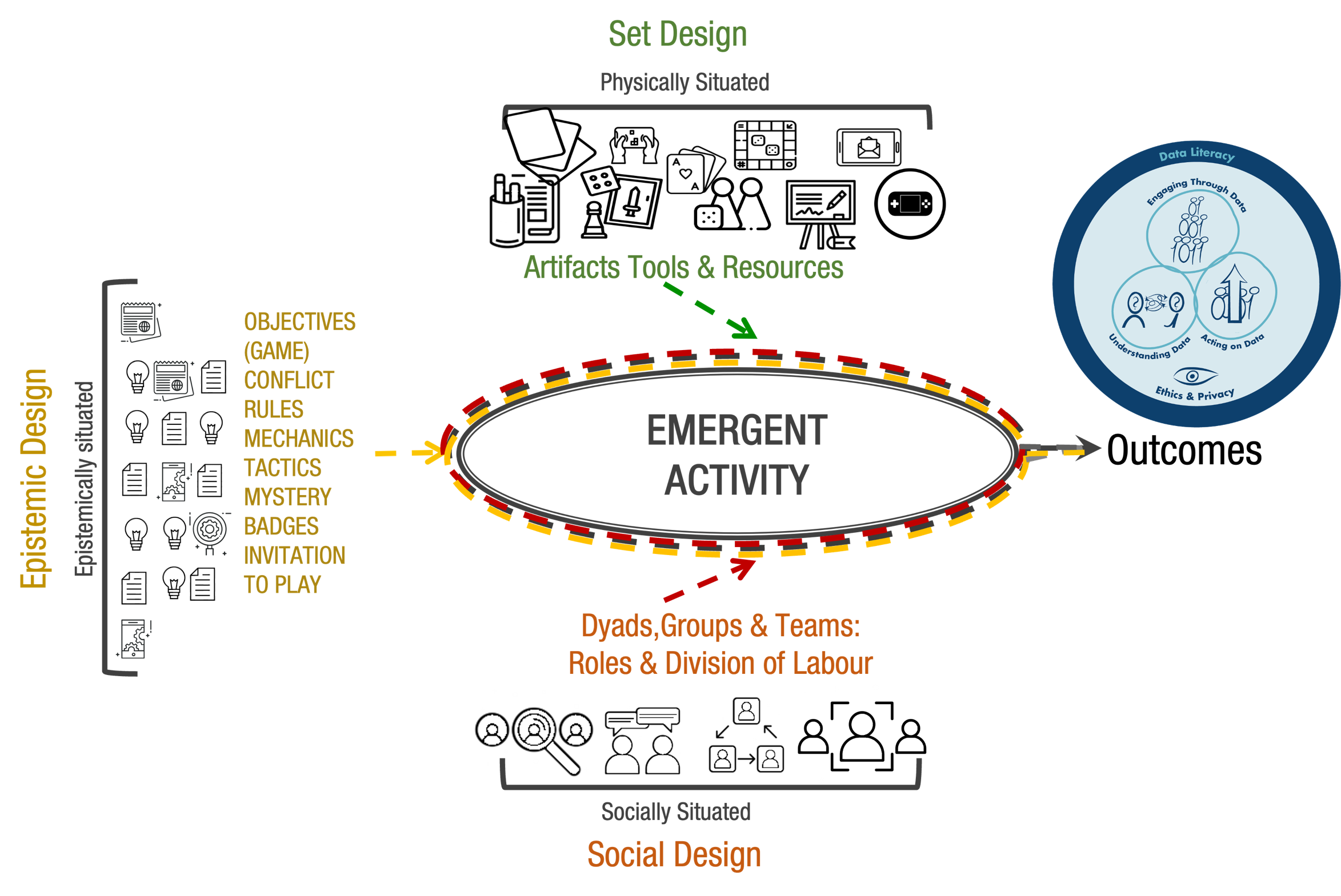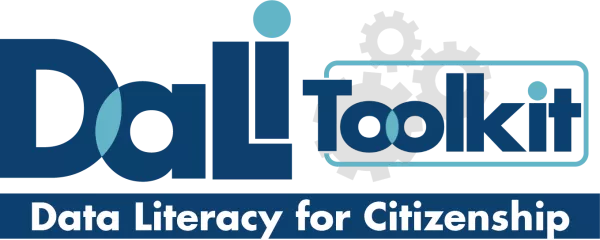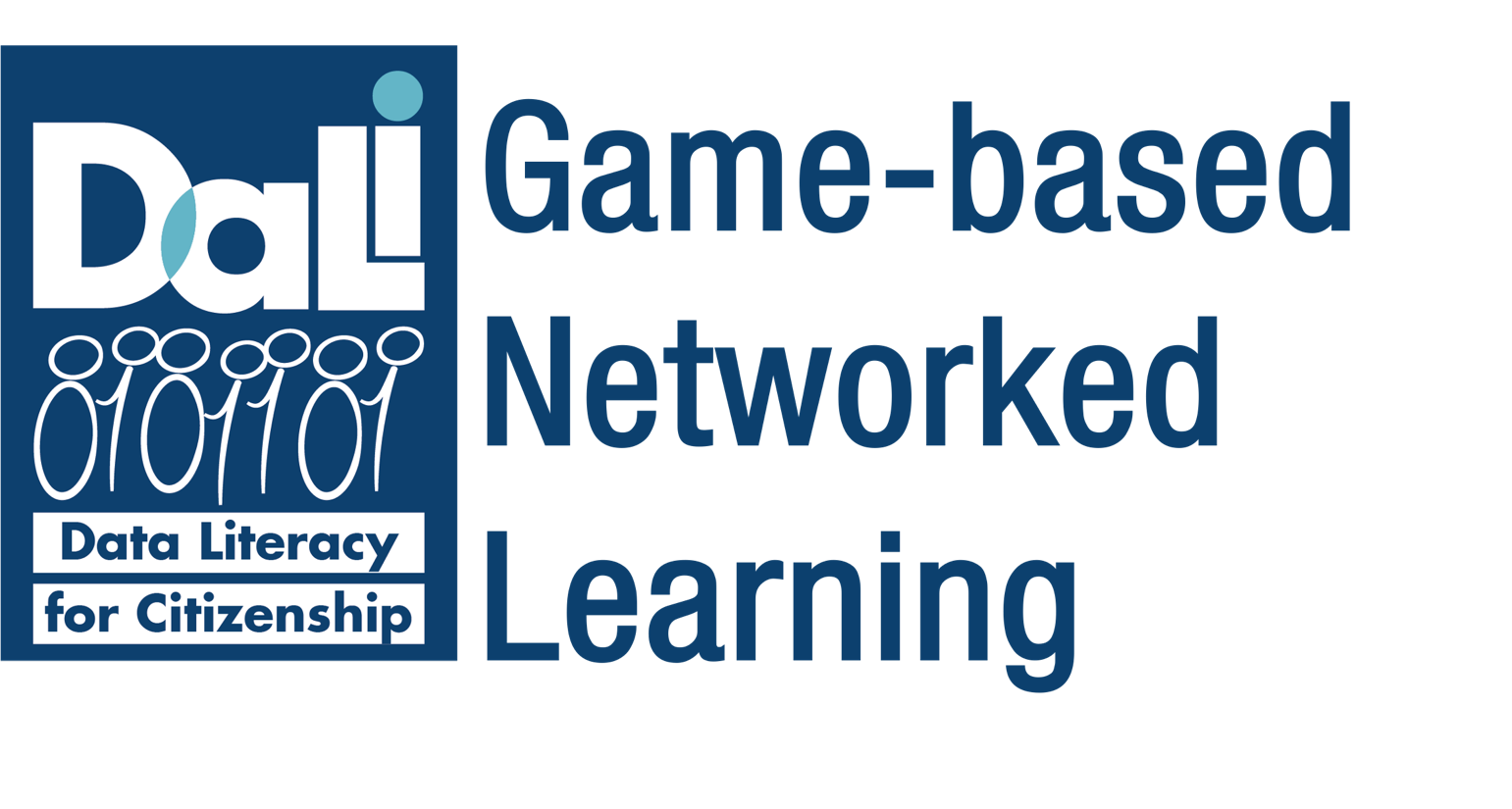THE DALI PEDAGOGICAL APPROACH
The DALI project’s pedagogical approach emphasizes the principles of networked learning, emphasizing learner agency, and connected learning.
The DALI (Data Literacy for Citizens) project focuses on providing tailored Data Literacy learning experiences for adults in non-formal educational settings. Combining networked learning and playful learning, DALI co-creates educational games designed to go beyond entertainment, integrating careful pedagogical planning. The project’s pedagogical approach emphasizes the principles of networked learning, emphasizing learner agency, and connected learning to create open networked infrastructures. The playful and game-based learning dimension of DALI addresses key aspects such as embracing failure for learning, fostering creativity through game immersion, and ensuring voluntary and intrinsically motivating activities. The development process follows the Transdisciplinary Model for Developing Game-Based Interventions, balancing entertainment and serious learning outcomes.
Structured using the Activity-Centred Analysis and Design (ACAD) framework, DALI’s Game-based networked learning experiences are designed across three key areas:
1. Set Design
This aspect focuses on physically situating learning activities, emphasizing the influence of qualities of the space and materials used. DALI’s set design incorporates game resources and materials as assets, creating a playful infrastructure that facilitates learner connections.
2. Epistemic Design
DALI’s epistemic design centers on creating knowledge-laden tasks for learners, aligning with principles that games are effective for inquiry-based learning. Games in DALI provide engaging contexts for systems thinking, design thinking, communication, creativity, and innovation.
3. Social Design
Recognizing that learning is socially situated, DALI leverages games as powerful tools for collaborative and active learning. The project emphasizes the importance of cultural identity, meaningful inquiry, caring relationships, and diverse cultural representation. Inclusivity is a key consideration, ensuring participation from a highly diverse population.
Discover the DALI Handbook: Your Gateway to GBNLS
Inside our comprehensive handbook, we unravel the intricacies of each DALI game, providing in-depth insights into the pedagogical approach behind the fun. From the principles of networked learning to the art of playful and game-based experiences, every detail is meticulously explained. The handbook serves as your go-to guide for understanding how DALI transforms data literacy education for diverse adult learners.
Overall, DALI’s pedagogical approach aims to facilitate meaningful learning experiences, leveraging the power of games and networked learning to enhance data literacy for a wide range of adult learners in diverse non-formal educational contexts.
Read more about the pedagogical approach of the DALI project:
Castañeda, L., Villar-Onrubia, D., Haba-Ortuño, I., Postigo-Fuentes, A. Y., & Arnab, S. (2022). Game-based Networked Learning. Proceedings For The Thirteenth International Conference On Networked Learning, 273–277
In this paper we explain the entire experience of GBNLS and games design:
Castañeda, L.; Arnab, S.; Tur, G.; Klykken, F.; Wasson, B.; Haba-Ortuño, I.; Maloszek, R.; De Benito-Crossetti, B. (in press) Co-creating pedagogically informed games for data literacy. Revista de Educación.



